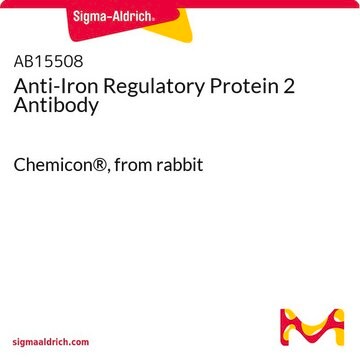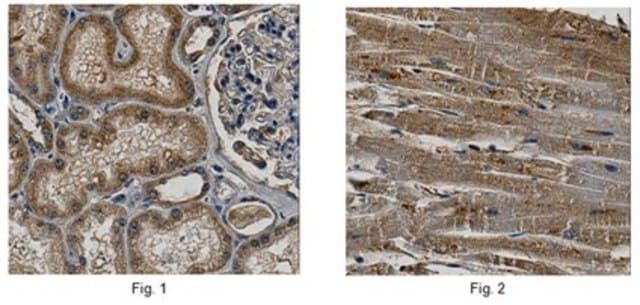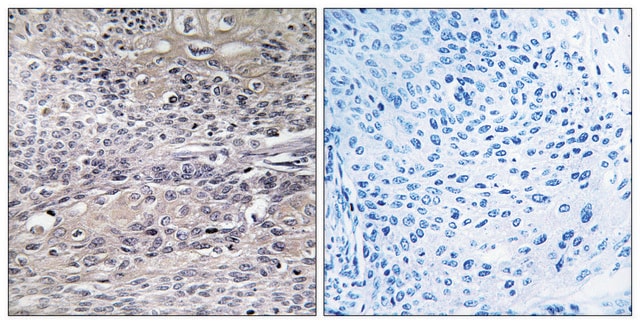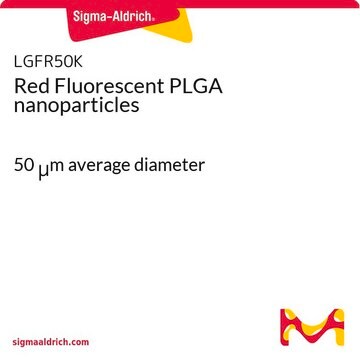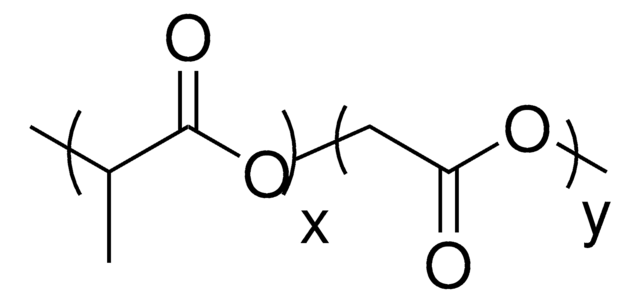MABS2030
Anti-IRP2 Antibody, clone 3B11
clone 3B11, from mouse
Synonym(s):
Iron-responsive element-binding protein 2, IRE-BP 2, Iron regulatory protein 2
About This Item
Recommended Products
biological source
mouse
antibody form
purified immunoglobulin
antibody product type
primary antibodies
clone
3B11, monoclonal
species reactivity
mouse, human
packaging
antibody small pack of 25 μg
technique(s)
immunohistochemistry: suitable (paraffin)
immunoprecipitation (IP): suitable
western blot: suitable
isotype
IgGκ
NCBI accession no.
UniProt accession no.
target post-translational modification
unmodified
Gene Information
human ... IREB2(3658)
General description
Specificity
Immunogen
Application
Western Blotting Analysis: A representative lot detected IRP2 in Western Blotting applications (Yoshinaga, M., et. al. (2017). Cell Rep. 19(8):1614-1630).
Signaling
Quality
Immunohistochemistry (Paraffin) Analysis: A 1:50 dilution of this antibody detected IRP2 in human kidney tissue sections.
Target description
Physical form
Storage and Stability
Other Notes
Disclaimer
Not finding the right product?
Try our Product Selector Tool.
Certificates of Analysis (COA)
Search for Certificates of Analysis (COA) by entering the products Lot/Batch Number. Lot and Batch Numbers can be found on a product’s label following the words ‘Lot’ or ‘Batch’.
Already Own This Product?
Find documentation for the products that you have recently purchased in the Document Library.
Our team of scientists has experience in all areas of research including Life Science, Material Science, Chemical Synthesis, Chromatography, Analytical and many others.
Contact Technical Service